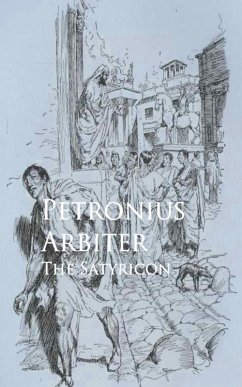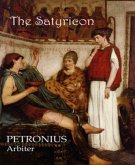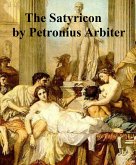It is one of the two most extensive witnesses to the Roman novel (the only other being the fully extant Metamorphoses of Apuleius, which has significant differences in style and plot). Satyricon is also regarded as useful evidence for the reconstruction of how lower classes lived during the early Roman Empire.
Dieser Download kann aus rechtlichen Gründen nur mit Rechnungsadresse in A, B, BG, CY, D, DK, EW, E, FIN, F, GR, H, IRL, I, LT, L, LR, M, NL, PL, P, R, S, SLO, SK ausgeliefert werden.




